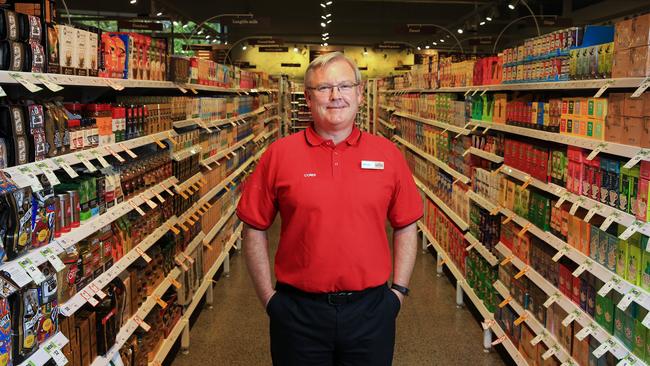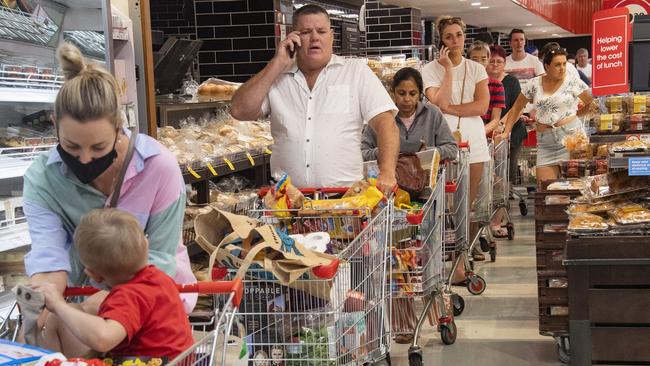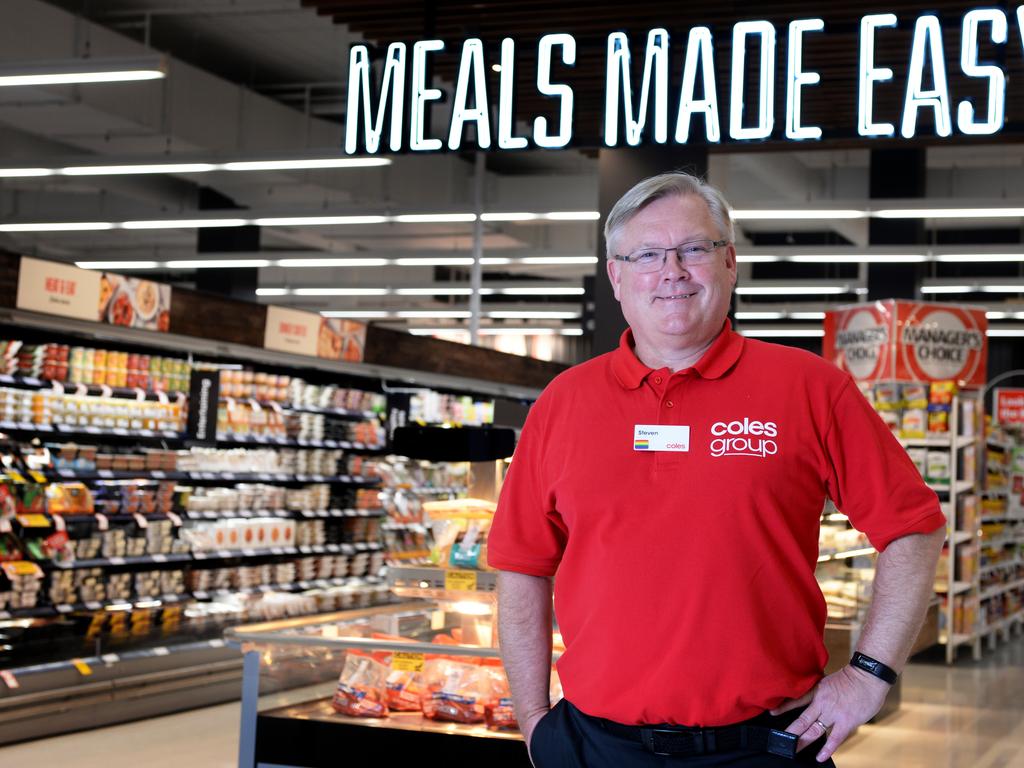Coles banking on vaccines to restore shopper confidence
Supermarket giant sees growth ahead but also challenges as shoppers return to malls, while it defends its small dividend rise.

Coles chief executive Steven Cain believes the chain will better compete with arch rival Woolworths and the independents on a “level playing field” created by a stronger vaccine rollout as people feel comfortable visiting larger shopping centres, where many of its supermarkets are situated.
This was the case for the last three quarters of 2021 (before the Covid-19 Delta strain plunged most of the country back into lockdowns), during which there was an unwinding of local shopping trends and the bigger centres and malls filled up, which allowed Coles to recover market share.
Mr Cain, who on Wednesday announced that Coles had recorded a 2.8 per cent gain in full-year net profit to $1.005bn, said Coles’s market share had bounced back to pre-Covid 19 levels by the end of the fourth quarter, although Coles was now encountering flatter sales into the new financial year as consumers again stayed close to home.
“We have got a strong offer if we have a level playing field and that gives me a lot of confidence, and what gives me more confidence still is the fact that if people did that (shopped at large centres) pre-vaccination, then post-vaccination people are going to be feeling a lot more confident about mixing in public,” Mr Cain told The Australian.
Traditionally, Coles has been stronger in shopping centres with fewer of its fleet in the suburbs – where Woolworths or smaller independent grocers have benefited from people staying close to home or unable to travel far due to lockdowns and restrictions.
This was now showing up in its recent trading, with Coles facing flatlining sales growth in the first seven weeks of the 2022 fiscal year as lockdowns take effect and people pivot to shopping locally.
Coles said in its supermarkets, sales growth in the first seven weeks of the first quarter was about 1 per cent on a headline basis and 12 per cent on a two-year headline basis as a result of the elevated sales from Covid-19. In the first seven weeks, sales growth was 9.7 per cent higher than the same quarter last year, one of the best performances for Coles.
“Certainly, the evidence last year was that the longer the lockdown, the more local shopping.” Mr Cain said.
“As the number of snap local lockdowns increased, and the NSW lockdown was extended, ‘local shopping’ trends have re-emerged with e-commerce and neighbourhood stores outperforming shopping centre and CBD locations.”

Coles said for the 2021 fiscal year, total sales were up 3.1 per cent at $38.56bn, while group earnings before interest and tax rose 6.3 per cent to $1.87bn. Profit before significant items was up 7.5 per cent to just over $1bn. The profit was in line with analyst forecasts.
The final dividend of 28c a share will be paid on September 28, but was only lifted by 1.8 per cent – in contrast to the big dividend increases announced by blue-chip companies this reporting season.
Mr Cain defended the size of the dividend and Coles’s reputation for paying rising dividends.
“I think when we look worldwide I am not sure we can find too many supermarkets with a higher dividend payout ratio than us,” Mr Cain said.
“And if you look at our profitability over the last few years since the (Wesfarmers) demerger it has been fairly steady profit growth and fairly steady dividend growth. I think some of the other companies … reduced their dividends last year and obviously they have increased their dividend significantly this year.”
Mr Cain said more suppliers were coming to Coles asking for price rises to reflect the heightened shipping and packaging costs caused by the disruption to global supply chains, but the supermarket chain was also conscious of remaining competitive and offering value to shoppers.
Meanwhile, in 2021 its flagship supermarkets chain lifted revenue 2.6 per cent to $33.845bn, liquor sales rose 6.6 per cent to $3.525bn and its Coles Express sales lifted 7.7 per cent to $1.192bn.
Earnings for Coles’s divisions were all strong, supermarkets profits increased 5.2 per cent to $1.7bn and liquor earnings were up 19.6 per cent at $165m.
Coles Express earnings were better by 103 per cent to $67m as stay-at-home orders were relaxed and people began driving more again, lifting fuel volumes, while the Coles Express model was also helped by people staying within their suburbs and shopping locally.
Jefferies analyst Michael Simotas called the Coles full-year performance a “solid result”.
“Cash generation was strong and fourth-quarter sales for both supermarkets and liquor better than expected,” he said. “Margin trends were largely as forecast and as expected, Covid lockdowns have left supermarket and liquor sales trends elevated in fiscal 2022 year to date.
“Overall a good outcome in the context of the compressed valuation.”
Coles shares rose 1c to $18.34.





To join the conversation, please log in. Don't have an account? Register
Join the conversation, you are commenting as Logout